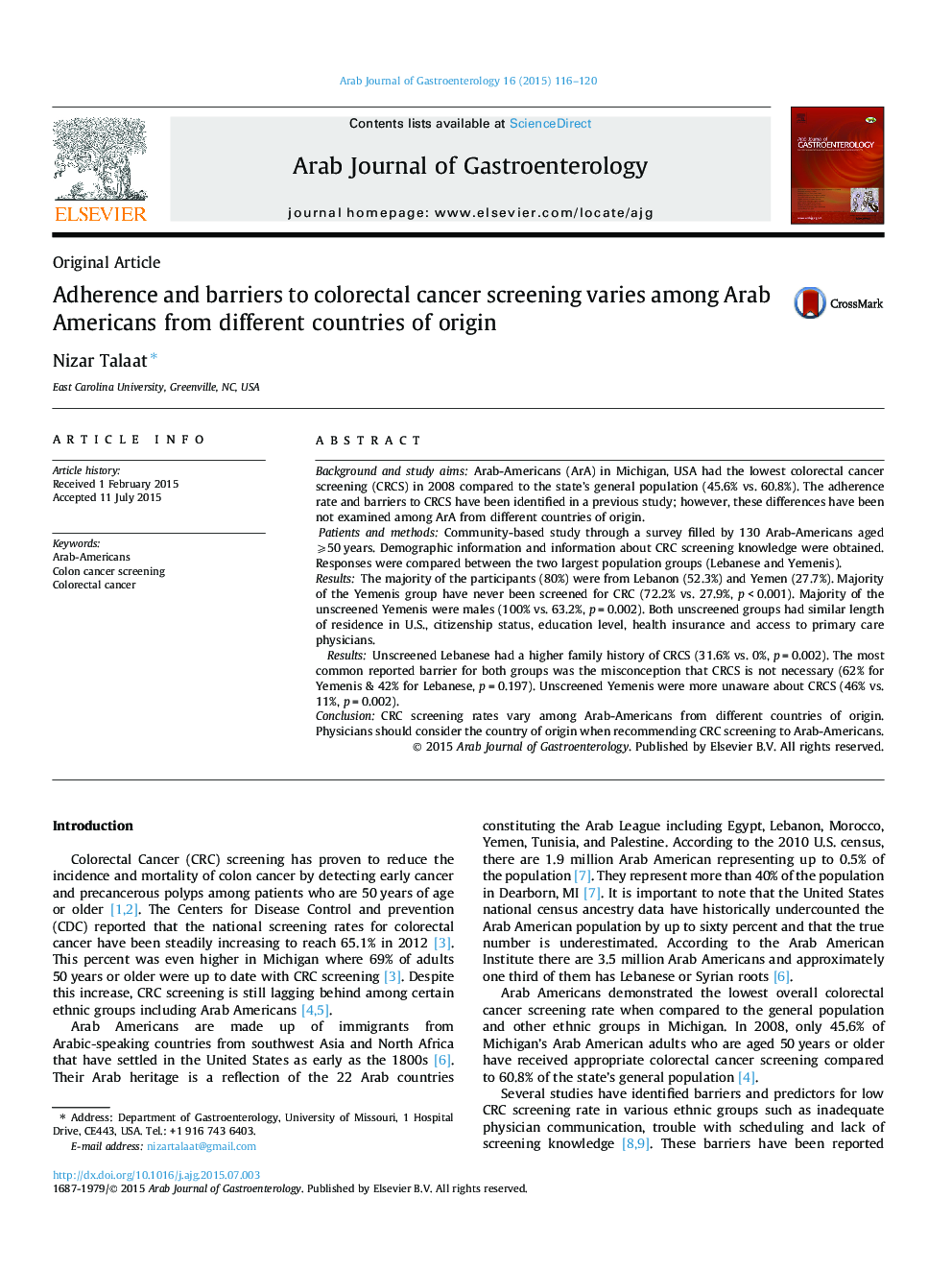| Article ID | Journal | Published Year | Pages | File Type |
|---|---|---|---|---|
| 3280760 | Arab Journal of Gastroenterology | 2015 | 5 Pages |
Background and study aimsArab-Americans (ArA) in Michigan, USA had the lowest colorectal cancer screening (CRCS) in 2008 compared to the state’s general population (45.6% vs. 60.8%). The adherence rate and barriers to CRCS have been identified in a previous study; however, these differences have been not examined among ArA from different countries of origin.Patients and methodsCommunity-based study through a survey filled by 130 Arab-Americans aged ⩾50 years. Demographic information and information about CRC screening knowledge were obtained. Responses were compared between the two largest population groups (Lebanese and Yemenis).ResultsThe majority of the participants (80%) were from Lebanon (52.3%) and Yemen (27.7%). Majority of the Yemenis group have never been screened for CRC (72.2% vs. 27.9%, p < 0.001). Majority of the unscreened Yemenis were males (100% vs. 63.2%, p = 0.002). Both unscreened groups had similar length of residence in U.S., citizenship status, education level, health insurance and access to primary care physicians.Unscreened Lebanese had a higher family history of CRCS (31.6% vs. 0%, p = 0.002). The most common reported barrier for both groups was the misconception that CRCS is not necessary (62% for Yemenis & 42% for Lebanese, p = 0.197). Unscreened Yemenis were more unaware about CRCS (46% vs. 11%, p = 0.002).ConclusionCRC screening rates vary among Arab-Americans from different countries of origin. Physicians should consider the country of origin when recommending CRC screening to Arab-Americans.
